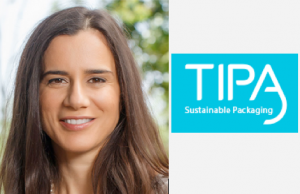Just like an orange peel, so nature won’t even notice we’re here. The segments of an orange are packed by nature in a protective multi-layer peel.
When discarded, the orange peel decomposes and leaves no toxic residue; the compost left behind can be used for plant growth. 100% of the orange peel returns to nature.
TIPA’s vision is that flexible plastic packaging will have the same end-of-life organic waste has, yet also offer consumers and brands the same durability and shelf life they have come to expect of ordinary plastics.
Yet bio-degradable and compostable packaging can only succeed if it has the same protective functionality as any equivalent “ordinary” plastic package – act as a barrier between food and the environment. It should also seamlessly fit into today’s manufacturing practices. This is the flexible packaging TIPA’s invention is creating.
We know a lot of consumers share our vision and desire the satisfaction of knowing that the plastic packaging they use can go back to nature; this benefits both consumer brands and the environment.
Plastic used for food and beverage packaging makes up two-thirds of the world’s plastic waste. Rigid (non-flexible) food plastic packaging is partly recyclable.
Flexible packaging (packages such as fresh produce, coffee, snacks, granola bars, sealable plastic bags, stand-up pouches, grains, etc.) is a growing segment of the world’s packaging market. The volume of flexible packages is smaller, reducing the use of plastics, but most flexible packaging can’t be practically recycled. Apart from the lack of collection and recycling infrastructure for flexible packaging, flexible packaging isn’t made of pure plastic polymers but rather made by blending several materials (this is necessary to give it the properties of “ordinary” plastics). These blended materials make recycling nearly impossible.
It is important to note that even when some of the materials used for flexible packaging are bio-degradable, the very blending of materials makes the whole package unfit for recycling or composting. It can only head for the landfill.



















